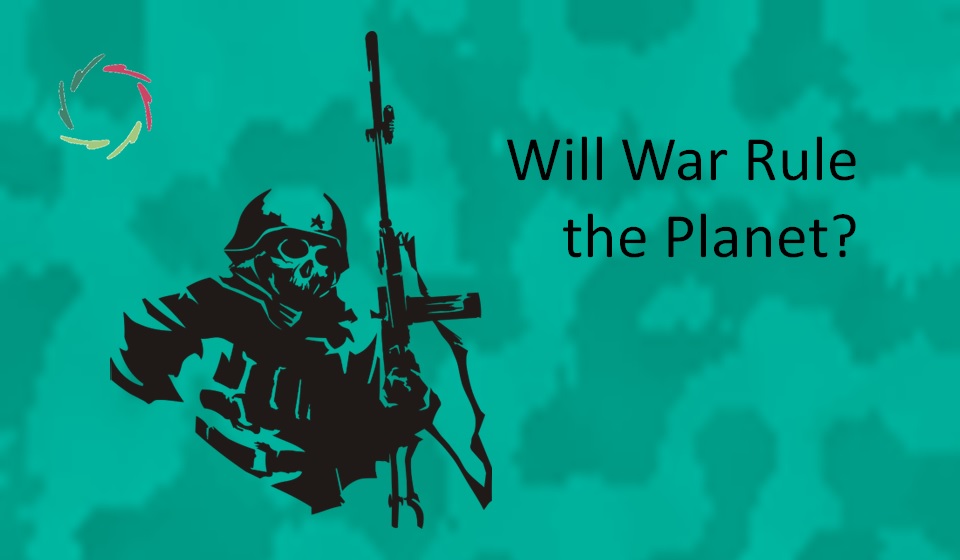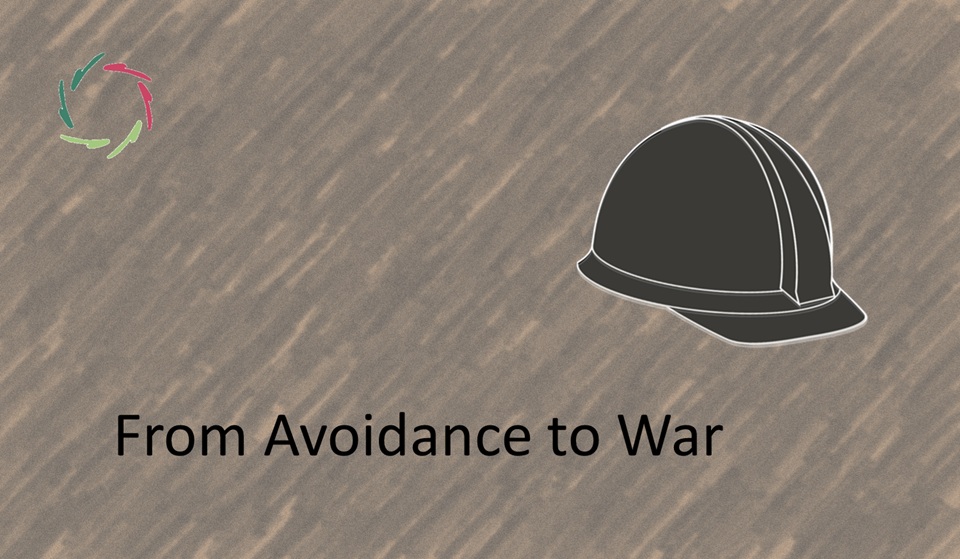Will War Rule the Planet?

Let’s do our best not to let this happen, especially since it’s already happening more or less. One should not be complacent.
Military conflicts are on the rise.
In the last decade, we have seen the start of major and still ongoing armed conflicts in Ukraine, Gaza, and many other places ― not to speak of a rumble that disconcertingly keeps roaring between China and the US.
Is the past not a reminder of the insanity and absurd simplicity of war?
Has humanity forgotten to grow up?
Industrial
The weapon industry has a considerable influence on warmongering by simultaneously providing the weapons and fostering the reasons for using them. The latter is done not so much through direct intervention as indirectly ― say, negative nudging, ‘divide and rule,’ fostering a general feeling of danger and more negativity in the background.
2.5 trillion US$ is spent on the military yearly ― 2.3% of the total world GDP, the biggest spenders being the US, China, and Europe. Does that look like the rationality of developed countries? Does that seem like an amount of money that isn’t amenable to Big Corruption?
Spend 2.5 billion US$ wisely, and there is no need to spend 2.5 trillion US$ on the industry of killing people. The wise spending comes with a return on investment of 100.000%.
This doesn’t make all involved into ‘bad people,’ but let’s not be naïve. There is Corruption, and there is Anxiety ― and more within a self-enhancing pattern. There is also a lot of the above being realized by those who don’t realize why and what they are doing.
Me-syndrome
The me-syndrome doesn’t make anyone bad ― but it shows how people can just-not-think or just-not-feel concerning those outside of the small circle. Eventually, it’s all ‘me first’ in the setting of this syndrome.
The result at a large scale is a lack of broad empathy and a flowing along with whatever happens to stream by — even in the worst setting. Seemingly normal, the me-syndrome has the direst consequences, such as an unremitting blindness to what underlies war.
The perverse mechanism.
This weapon industry (unfortunately, not the only one) directly prospers through the misery of many people while letting some individuals gain tons of money. It’s not only about those dying at war, but also the many for whom resources (money, people, insights) are lacking through being diverted.
The main perversity lives in the abuse of some of humanity’s best qualities, such as the urge to defend one’s people, love-turned-into-revenge, and the attraction from religious feelings. A lot of human energy (deep motivation) can thus be reaped and abused.
War is the product of anxiety on top of hostility.
For instance, by feeling disrespected, manipulated, or ‘made to look weak.’
Where there is fear, there can be talked at the surface level, and a solution readily found. This is different from anxiety, which is always irrational. Unfortunately, anxiety on one side of a conflict is enough for the grinding of war. If not checked or defused, the grinding may go harder and harder.
Are weapons needed to defend the own population?
That, at least, seems a good argument. However, on the other side of any conflict, the same argument is used. So, if both populations would listen deeply to each other, would they still need weapons to defend themselves?
The only decent answer is ‘no.’ Deep communication can make populations feel like one, which in the end, we all are — globally. This way, any two populations can feel like one, taking out any reason for war, thereby making it a futile undertaking.
Let’s not be naïve. Profoundly naïve is any other vision. There is no people’s enemy, only people’s being manipulated ― of which we see a lot. The above-mentioned industry plays a sorry role in this, but it cannot do so without the me-syndrome.
War rules where peace withers.
So, peace should be the focus. Each individual can work on that. Global peace comes from within many people, including you and me.
Also, this is not a simple happening. Many things are related to many other things in different conscious and non-conscious ways ― for instance, in the way we heal psycho-somatically. Either we fight disease, or we grow toward health by listening to symptoms.
The latter is the core of AURELIS, of course.


